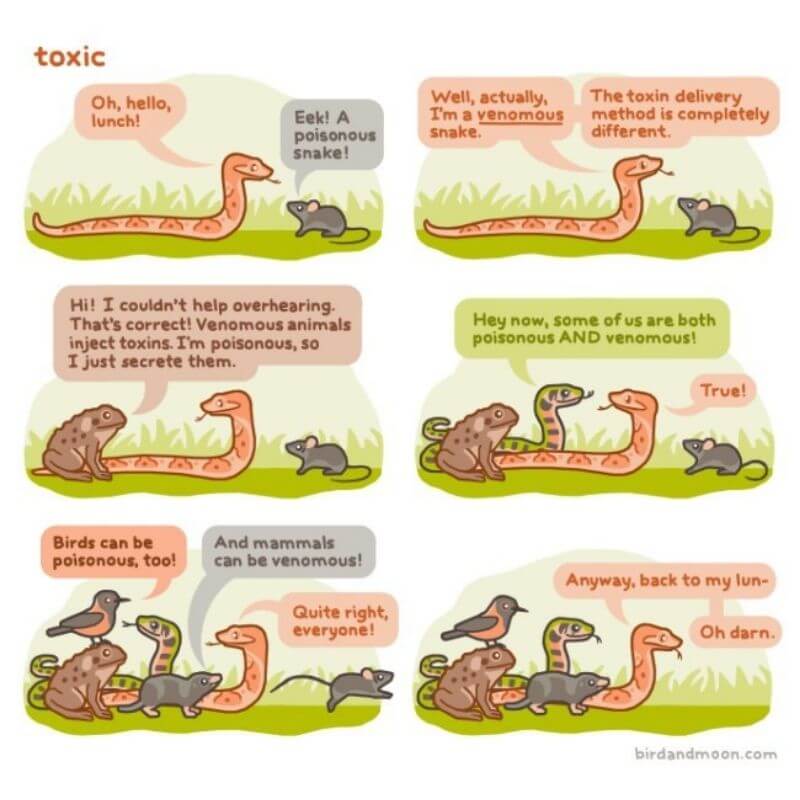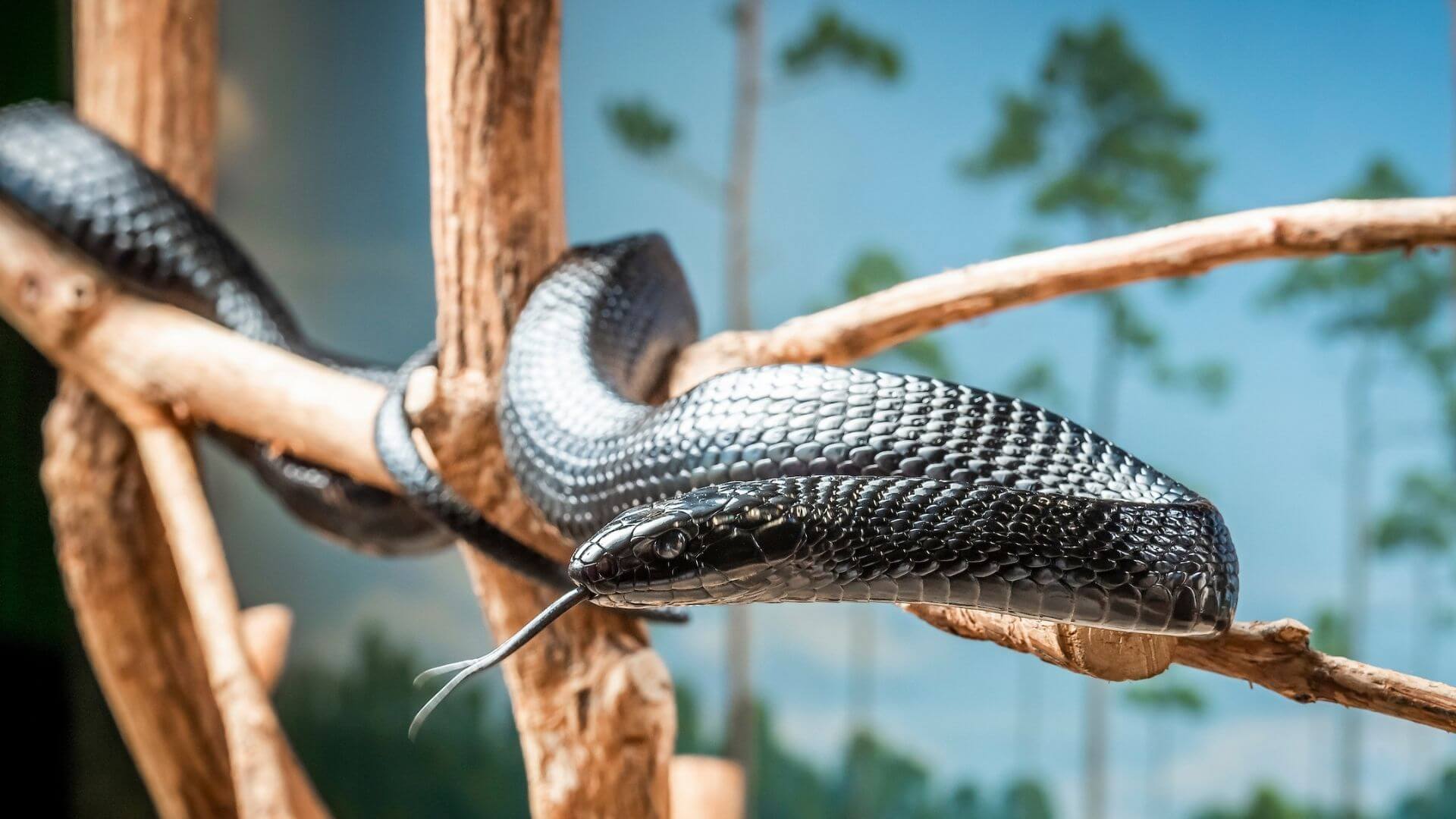Are snakes venomous or poisonous? Can some snakes be venomous and poisonous?
Florida is home to 44 different snake species, from the large and dramatic eastern indigo snake, to the teeny tiny ringneck. All of our serpentine friends, even the venomous ones, serve important roles in our ecosystem by helping to regulate rodent populations, and by providing food to larger predators. Notice, we said venomous snakes, not poisonous ones. That’s because venom and poison aren’t the same things. But can some snakes be both venomous and poisonous?
First, let's break down what it means to be venomous versus poisonous. Both venom and poison are toxins, which means they can cause harm to our bodies. The difference between venom and poison is how the toxin gets into a body. Poison is either eaten or touched, like poison ivy or arsenic. Those can only hurt you if you put them in your mouth or on your skin. Venom, on the other hand, is injected. Think of the fangs of a snake or the stinger of a scorpion. Venomous animals must puncture the skin of their victims to get their venom into the victim’s blood.
While unusual, there are a few species of snake that are actually poisonous. Rhabdophis keelback snakes are both venomous and poisonous – their poisons are stored in nuchal glands and are acquired by sequestering toxins from poisonous toads the snakes eat. Similarly, certain garter snakes from Oregon can retain toxins in their livers from ingesting rough-skinned newts.
Of these 44 different species of snakes that call Florida home, only six are dangerous to people, those being:
- Eastern coral snake
- Southern copperhead
- Cottonmouth
- Eastern diamondback rattlesnake
- Timber rattlesnake
- Dusky pygmy rattlesnake
That all sounds pretty scary, but don’t worry! It’s actually very unlikely to be bitten by a snake in the state of Florida. In fact, it is much more likely for a person to be struck by lightning than to be bitten by a venomous snake! This is because snakes want nothing to do with people. They usually are very likely to flee at the first sight of a person. They don’t want to end up as a larger animal’s dinner after all!

Unfortunately, the majority of reported snake bites are due to handling snakes or even trying to hurt them. If you’re still concerned about snakebites, educate yourself and family about them, make sure not to reach into dense bushes where you can’t see your hands, and seek out snake avoidance training for your pets. Fortunately, even those who do get bitten are almost always fine, as long as they seek out medical attention immediately. Snake venom has been heavily researched by medical scientists for creating new highly effective medicines.
Take a few minutes to find out which venomous and nonvenomous Florida snakes are your favorites, and see which ones you can find in NatureWorks next time you slither into Orlando Science Center!
